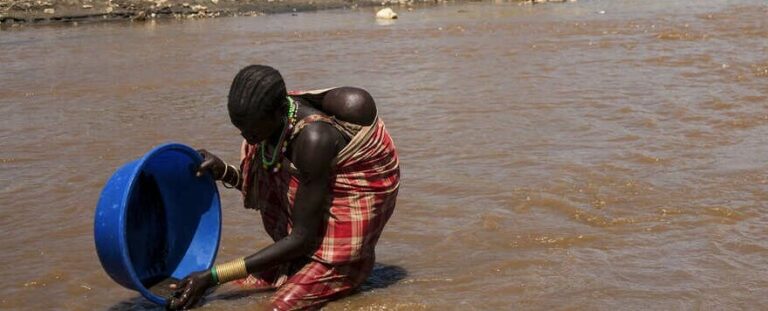South Sudan’s mineral-rich areas continue to suffer from illicit activities, poor oversight and a lack of government accountability, according to a new report.
The report, released Friday by the Civil Society Coalition on Natural Resources (CSCNR), found that local communities remain impoverished even as millions of US dollars’ worth of gold is exported annually.
The research examined the mining sector’s revenue collection and risks, using case studies and risk assessments.
Yoaso Mototio, a geologist at South Sudan’s Ministry of Mining, acknowledged widespread illegal mining, particularly in Eastern Equatoria State. He said the ministry lacks the capacity to regulate the sector due to the absence of geological mapping and porous borders.
“The ministry, of course, knows there is illicit mining going on,” Mototio said. “But our biggest challenge is that our minerals or the natural resources are not geologically mapped.”
This gap has allowed companies to enter the country under the guise of exploration without the technical or financial resources to conduct proper surveys, he said.
In areas such as Kapoeta in Eastern Equatoria State and Boro Medina in Western Bahr el Ghazal state, unregulated artisanal mining is booming. Kapoeta relies on inconsistent and often unprofitable alluvial gold deposits, while Boro Medina has hard-rock mining potential but remains poorly monitored.
Mototio also cited weak border controls and uncompetitive government pricing as drivers of gold smuggling.
“Our borders are very porous,” he said. “Businessmen, both South Sudanese and foreigners, trade in gold. The government may set a price, but a trader offers more, so miners sell to them instead.”
He estimated that up to 40 tons of gold leave South Sudan annually without government oversight or benefit to the state.
The ministry has signed an agreement with China to help map South Sudan’s mineral resources, but officials admit the process will be costly and time-consuming. Meanwhile, authorities have deployed officials at Juba International Airport to intercept illegal exports.
Mototio stressed the need to work with civil society to educate communities about mining processes.
“Exploration is based on probability,” he said. “Someone is telling you, ‘Build a school,’ while you are still figuring out if the mineral exists. That frustrates investors.”
However, civil society groups argue that government inaction and weak enforcement are central to the problem.
CSCNR chairperson James Boboya presented findings from gold mining areas in Budi, Kapoeta North and Kapoeta South, saying community experiences contradict the government’s official narrative.
“The laws exist, but they are not working on the ground,” Boboya said. “The voices we heard from civil society and communities are telling a different story.”
The report, supported by the Luce Foundation, found that despite the 2012 Mining Act and 2015 mining regulations, enforcement is weak and benefits fail to reach communities.
“Let no one tell you there’s no gold mining in South Sudan,” Boboya said. “Gold is being taken out, and money is being made — but the communities remain poor.”
He noted that many artisanal miners return empty-handed and food insecure after working in dangerous, unregulated conditions.
The report criticizes the government’s focus on short-term gains and calls for stronger enforcement of mining laws, better funding for the Ministry of Mining and increased collaboration among the government, civil society and communities.
“It’s time for communities to take back their resources,” Boboya said. He proposed a civil society-government forum to promote responsible resource governance.




